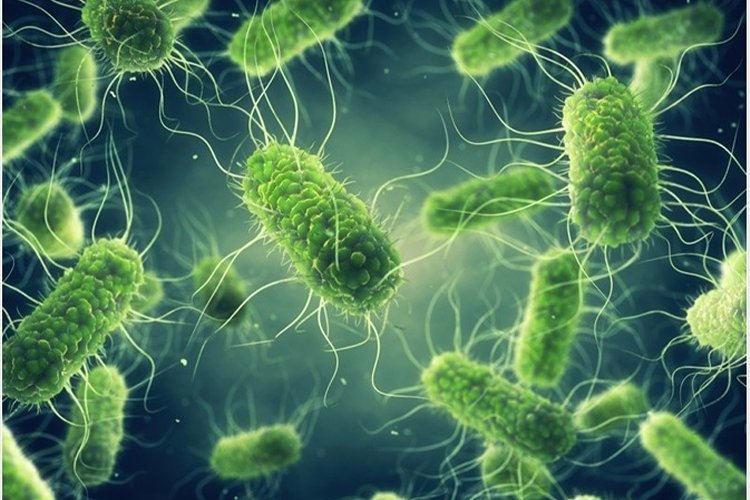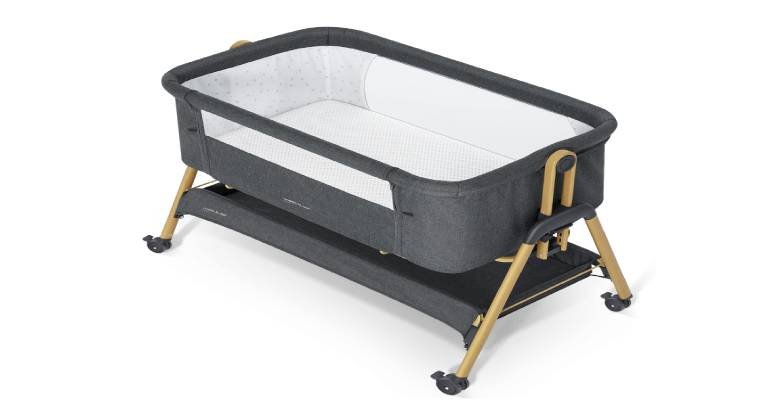- Beauty & Skincare
- Fashion
- Food And Drinks
- Health & Care
- Home & Garden
- LifestyleExplore stories and advice on living your best life. From personal growth to entertainment, dive into the latest in lifestyle trends and inspiration.
- Travel
- Beauty & Skincare
- Fashion
- Food And Drinks
- Health & Care
- Home & Garden
- LifestyleExplore stories and advice on living your best life. From personal growth to entertainment, dive into the latest in lifestyle trends and inspiration.
- Travel
Now Reading: Salmonella is sneaky: Be careful
-
01
Salmonella is sneaky: Be careful
- Beauty & Skincare//
- Fashion//
- Food And Drinks//
- Health & Care//
- Home & Garden//
- Lifestyle//Explore stories and advice on living your best life. From personal growth to entertainment, dive into the latest in lifestyle trends and inspiration.
- Travel//
- Home
- Health & Care
- Salmonella is sneaky: Be careful
Salmonella is sneaky: Be careful
SahilHealth & Care1 year ago20 Views

Surprise test: What is salmonella? If you’ve ever been exposed to this bacteria, you know it can cause a foodborne illness called salmonellosis, a form of food poisoning. But you may not know that salmonella bacteria sicken an estimated 1.35 million people in the United States each year and hospitalize 26,500. In addition, more people die from salmonella overall than from any other type of food poisoning.
And salmonella bacteria can be sneaky—not only does it cause unusual complications, it also infects people in surprising ways, says Elizabeth Hohmann, MD, an infectious disease specialist at Massachusetts General Hospital. One of her patients had an abdominal aortic aneurysm—a dangerous bulge in the lower section of the body’s largest artery—that appeared to be infected. Testing revealed a culprit that some would find surprising: salmonella.
“It’s just an interesting organism and it can be pretty scary,” she says.

How do people become infected with salmonella?
Many of the foods in which salmonella bacteria lurk are raw or undercooked. Breaded raw chicken products like nuggets and chicken Kiev are one way the bacteria can get to your table. But a variety of foods have been linked to it — including organic basil, cantaloupes, ground beef, nut butter, raw cookie dough, eggs, raw or unpasteurized milk and flour.
Even small pets like turtles and frogs, as well as dog food, have contributed to salmonella outbreaks in recent years.
You can also become infected if you handle contaminated food and transfer the bacteria from your hands to your mouth. In addition, you can spread the bacteria to others via your hands or even your clothing without getting sick yourself.
“It’s a pathogen that is transmitted in stool and animal feces and is also found in the environment,” says Dr. Hohmann. “So it can take up residence in many different inanimate objects, soil and machinery, especially in moist environments.”
What symptoms can salmonella cause?
In most cases, a salmonella infection results in gastrointestinal inflammation, which usually only causes upset stomach, abdominal cramps and diarrhea. These symptoms can appear as early as six hours after ingesting the bacteria. Typically, symptoms resolve on their own within two to three days.
Some people have symptoms so mild that they are barely noticeable. “The classic case might be a college student who eats a burrito from a dodgy joint, is sick for a few days, gets better and thinks nothing of it,” says Dr. Hohmann.
Sometimes the symptoms are more severe, such as severe abdominal cramps and bloody diarrhea or unexplained high fever and extreme fatigue. If you have these symptoms, you should call your doctor.

How is salmonellosis treated?
Most people recover on their own, without medication. Replacing lost fluids by sipping water or electrolyte drinks helps to avoid dehydration.
Call a doctor if you have
diarrhea and a fever over 102 degrees F
diarrhea that doesn’t improve after three days
bloody stools
vomiting so severe that you can't keep any fluids down.
Treating the infection with medications brings with it an annoying paradox, Dr. Hohmann says. When doctors decide to prescribe antibiotics, the person taking the medication may shed the organism for longer than if they were never treated. “Then that person may have the opportunity — either through poor personal hygiene, sex or working as a food worker — to spread it to others,” she explains. “That’s a challenge.”
What complications can salmonella cause?
Some people, for seemingly no reason, get more seriously ill with salmonellosis than others. But certain people are particularly susceptible to serious infection, including:
Adults age 65 and older
Pregnant women
Children under age 5
People whose immune systems are weakened by diseases (such as cancer) or treatments (such as immunosuppressive drugs).
A small percentage of those infected may have salmonella in their blood, which can spread the infection to other parts of the body, such as the urinary tract, bones, joints, or central nervous system (brain and spinal fluid).
And as with Dr. Hohmann’s patient with the abdominal aortic aneurysm, salmonella can, in rare cases, cause unusual blood vessel complications in people who already have atherosclerosis, a blockage of the arteries caused by plaque buildup.
“It’s not that common,” she says. “Many doctors are aware of this, so they’re extra cautious when salmonella is found in a person with vascular disease.”
What steps can you take to avoid salmonella?
While new USDA rules that will take effect in 2025 may help lead to recalls of certain foods, we can all take steps to avoid food poisoning, illness, and hospitalizations that can result from contact with salmonella.
Dr. Hohmann and the CDC suggest these strategies:
Wash cutting boards or plates used to cut raw foods — including fruits and vegetables — with hot water and soap before using those surfaces for other purposes. If possible, use separate cutting boards for fruits, vegetables, meat, and fish.
Refrigerate or freeze perishable, prepared, or leftover foods within two hours to prevent salmonella growth.
Always wash hands thoroughly with soap and water before preparing food and after contact with animals, using the bathroom, or changing diapers.
If you have a sick pet, be extra careful with its feces and wash your hands thoroughly afterward.
Take additional steps to help more vulnerable people stay healthy:
Don’t let young children touch high-risk animals like turtles, frogs, chickens, or ducks. “And if you take young children to a petting zoo, don’t let them pet any animals unless you can sanitize their hands immediately afterward,” she says.
Older adults and those with weakened immune systems should be especially careful to wash and cook food thoroughly. People who have had a transplant (e.g. a kidney transplant) should not keep reptiles or amphibians as pets.
“You don’t want to make people paranoid so they wash their lettuce leaves with soap, but it’s worth thinking about these things, especially if you have people in your household who are vulnerable – and that’s an increasing number of people,” says Dr. Hohmann.

























